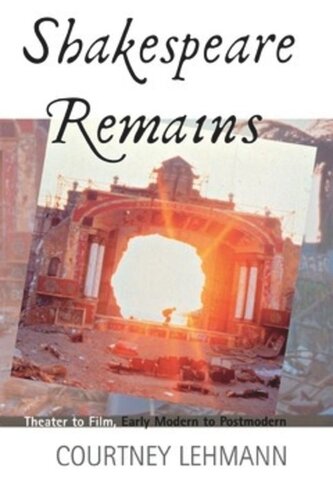

Most ebook files are in PDF format, so you can easily read them using various software such as Foxit Reader or directly on the Google Chrome browser.
Some ebook files are released by publishers in other formats such as .awz, .mobi, .epub, .fb2, etc. You may need to install specific software to read these formats on mobile/PC, such as Calibre.
Please read the tutorial at this link: https://ebookbell.com/faq
We offer FREE conversion to the popular formats you request; however, this may take some time. Therefore, right after payment, please email us, and we will try to provide the service as quickly as possible.
For some exceptional file formats or broken links (if any), please refrain from opening any disputes. Instead, email us first, and we will try to assist within a maximum of 6 hours.
EbookBell Team

0.0
0 reviewsNo literary figure has proved so elusive as Shakespeare. How, Courtney Lehmann asks, can the controversies surrounding the Bard's authorship be resolved when his works precede the historical birth of that modern concept? And how is it that Shakespeare remains such a powerful presence today, years after poststructuralists hailed the "death of the author"? In her cogent book, Lehmann reexamines these issues through a new lens: film theory.An alternative to literary models that either minimize or exalt the writer's creative role, film theory, in Lehmann's view, perceives authorship as a site of constitutive conflict, generating in the process the notion of the auteur. From this perspective, she offers close readings of Romeo and Juliet, A Midsummer Night's Dream, and Hamlet, of film adaptations by Kenneth Branagh, Baz Luhrmann, and Michael Almereyda, and of John Madden's Shakespeare in Love. In their respective historical contexts, these plays and films emerge as allegories of authorship, exploiting such strategies as appropriation, adaptation, projection, and montage. Lehmann explores the significance of this struggle for agency, both in Shakespeare's time and in the present day, in the cultures of early and late capitalism.By projecting film theory from the postmodern to the early modern and back again, Lehmann demonstrates the ways in which Shakespeare emerges as a special effect—indeed, as an auteur—in two cultures wherein authors fear to tread.